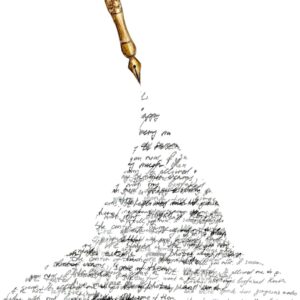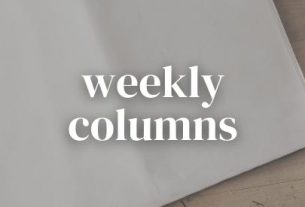
Paul Utterback
Paul Utterback is passionate about the English language and literature. He’s also a Library Assistant in the Reference & Local History Department at the Crawfordsville District Public Library.
 April is National Poetry Month, and if there’s one section of the public library that doesn’t get enough attention, it’s the poetry shelves. Seen as aloof, inaccessible, unrelatable–the stuff of groans and head-scratching from English class days gone by, poetry often gets a bad rap.
April is National Poetry Month, and if there’s one section of the public library that doesn’t get enough attention, it’s the poetry shelves. Seen as aloof, inaccessible, unrelatable–the stuff of groans and head-scratching from English class days gone by, poetry often gets a bad rap.
But here’s the thing. We live in fraught times–filled to the brim with emotion. Poems speak to our time. Poetry is an art form that gives pride of place to the intense expression of ideas and emotions but is often (though not always) constrained by a distinctive style and rhythm.
In a time when we may feel parched and rootless, poetry hearkens back to the deepest imaginative springs of our species: it’s the oldest form of literature. Poetry–verse–forms the backbone of many religious texts; almost a third of the Bible is poetry (think Song of Songs 220.5 Bib), and the Bhagavad Gita, from the Hindu tradition (294.5 Bha) is given in verse. Poetry is also the epics of the Ancients–the novel doesn’t come to the fore until the 18th century!
Let’s start with the ancients: “The Odyssey” (883 Hom) and “The Iliad” (883 Ili). These are bedrocks of the Western tradition: archetypal stories of war that are both, in a sense pro-war and anti-war, and telling a tale for which we’re always hungry about patriotism, the gods, virtues, love, lust, and loss. They are some of the earliest epics (7th century BC); although, the crown goes to “The Epic of Gilgamesh” (892.1 Gil) written sometime between 2100 and 1200 BC. Other noble entrants in this category: Virgil’s “Aeneid” (873 Vir), “Beowulf” (829.3 Beo), and, adding chivalry and courtly love to the epic, “The Song of Roland” (841.1 Cha).
No rollicking tour of the western poetic imagination would be complete without two notable works of the high middle ages. First, Chaucer’s “Canterbury Tales” (821.1 Cha) gives grand glimpses of the characters that permeate Medieval life as motley pilgrims weave tales whilst meandering through the English countryside. Second, I would argue that most of what we imagine about Hell comes not from religious scriptures but rather from the dramatic mind of Dante and his “Divine Comedy” (851 Dan). True, some of his linguistic genius is lost in translation but none of the narrative delight.
It seems somehow wrong to skip over Shakespeare and Milton, but I must make haste to the modern world!
For quite the change of pace, try a Beat Poet: Langston Hughes’ work (811.52 Hug) should pique your interest. Take in the quiet passion of Emily Dickinson with her Complete Poems (811.4 Dic). Cultivate gratitude with How to Love the World (811 How). Be moved by the observations of Rupi Kaur in “Milk and Honey” (811.6 Kau).
Or like Virgil for Dante in his Inferno, let someone take your hand on the journey and introduce you to many voices. Let a lover of life and people and places like Naomi Shihab Nye guide you with “The Space Between Our Footsteps” (808.81 Spa) or “What Have You Lost?” (808.81 Wha). Garrison Keillor of “A Prairie Home Companion” fame offers a solid smattering with his “Good Poems” and “Good Poems, American Places” (811.008 Goo).
I’ve only just begun, but there’s so much more! Hop over to poets.org to read United States poet laureate Ada Limón’s contemporary selections for the month as well as ways to celebrate at home. As spring warmth beings to wash over us and thaw our creaky joints, head out into nature armed with a notepad and pencil and write some poetry of your own. Lastly, come take a look at the library’s display for National Poetry Month on the second floor, and see if anything shimmers for you. Happy reading!


